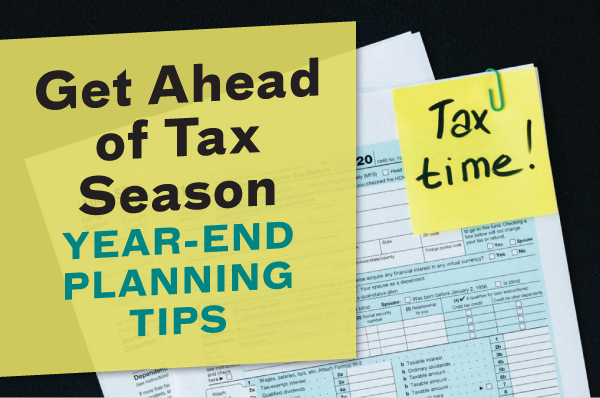
Most people wake up in 2025 and think about taxes they need to file. The problem is it’s too late to do most of the things that would lower your taxes. This is why now is the time to be proactive about year-end planning.
When I say year-end planning, I don’t mean the week between Christmas and the new year; rather, early in November, ideally in October. In this article, I’m going to share some planning strategies to save more money on taxes.
Check Your Income and Withholding
If you have a W-2 job, you can do a quick tax calculation to see how much you might owe or potentially get back next year. Start by taking out last year’s return and see where you ended up. If you find that you got a refund and not too much changed this year, you may want to update your W-4, which is the form that adjusts your withholding and have less money taken out for the rest of the year. Why not get a raise now rather than wait until 2025 to get a refund?
Do an internet search for a tax estimate calculator, like Intuit or H&R Block or even the IRS. Put your numbers in and you should have a reasonable idea where you will end up.
Looking for More Deductions?
You can contribute a bit more to your 401(k), set up an IRA or even make a contribution to your favorite charity to lower your taxes. While most Americans take the standard deduction, itemizing your deductions could result in a larger tax return. You can strategically work at reducing your income and increasing your deductions above the standard deduction. If cash is tight, you can also donate stuff around your house that you don’t use so that you can get a larger charitable deduction.
For 2024 the standard deduction is $14,600 if you are single, and $29,200 if married filing jointly, while head of household gets $21,900. Most of us can make a few moves to optimize deductions before it’s too late.
Don’t forget one of the most valuable tools available, the Health Savings Account. With an HSA, you can save up to $8,300 (family) for future medical expenses and get a tax deduction. Then use the money for medical expenses and take it out tax free in the future. It’s a permanent tax benefit.
Are You a Business Owner?
Several options can benefit you. I encourage you to work with a tax and financial advisor to help you maximize the benefits that are available to you. Here are a few to consider:
Travel: Do you travel to client locations, to networking events, meet clients at a public place or go to community events? If you track your mileage, you can claim a tax deduction of 67 cents per mile. Keep in mind if you have an office that you drive to and from, that is commuting and isn’t deductible.
Work from home? If you have a dedicated space which you don’t use for other purposes, you can potentially deduct that space and get a nice tax deduction.
Computers, Tablets, Phones and More: As long as these things are used primarily for business purposes, they can be deductible. You can be creative here—as long as it has a business purpose, you can deduct Bluetooth headsets, storage drives, even a smartwatch.
Retirement Plans: Whether you run a solo practice or have employees, there are great tax deductions and credits available, especially with Congress passing SECURE Act 2.0. Many small businesses can set up a retirement plan and get all their money back in credits.
Business Meals and Entertainment: If you meet clients for meals, bring in food for employees or host client appreciation events, these can be anywhere from 50% deductible to 100% depending on the event and the reason. Also, if you take a business trip and also add in some rest and relaxation, you can deduct some or all of the trip.
Business Entity Structure: it’s important to know whether you should be a sole proprietor, have an LLC or an S Corporation. Each have different legal and tax ramifications and choosing the right structure for you can save you a lot of money.
There are many more deductions available, so be sure you speak with a qualified tax professional or financial advisor with a tax background.
(Disclaimer: This article is for informational purposes only and is not tax, legal or financial advice. Everyone’s situation is different, so consult a financial advisor. If you would like to connect with me, please call 615-619-6919 or email smoran@redbarnfinancial.com. Check out our webinars on year-end planning at redbarnfinancial.com/events.)
___
Photo, top, courtesy of Nataliya Vaitkevich / Pexels













